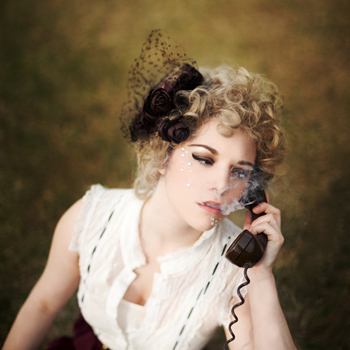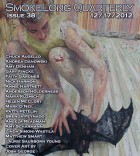I assume the baby’s name—that the husband thinks they shouldn’t change—is Christopher. At what point did you decide not to say so outright? Why?
I can see how you could think that, but it wasn’t my intention. You could be right, though.
I guess I feel that you name something once it belongs to you. Not just the traditional parent-names-child, but people give nicknames to their close friends, pet names to their significant others, and I think most people name their first car (my Honda’s called Penelope). I renamed my dog after I adopted him, and I find it satisfying that he doesn’t respond to his old name anymore.
So, because I never intended the baby to belong to Lynette, it would have been too heartbreaking to give it a name. I don’t think I even gave it a gender.
You are spare with your details, yet each is so well-chosen: Lynette drinking a cherry Big Gulp, the overweight lion’s ribs. How do you choose? And will you share a detail or two you chose to leave out and tell us why?
Some of the details are true things. There is an overweight lion at the Franklin Park Zoo in Boston. His name is Christopher. I don’t remember if the zoo sells Cherry Big Gulps though.
As for details that I took out, I don’t delete a lot when I’m writing. I’m always struggling to make it longer. My first drafts of stories are usually just a beginning and an end, and then I really have to suffer for the middle. I guess that’s why I like flash fiction so much: you don’t really need a middle. The end can be center-stage.
I’m intrigued that you find endings easier than middles. Will you talk more about your writing process? Which parts of “Christopher” came to you first?
I suppose I get so excited by the end of a story because I feel like it’s an opportunity for a bit of weirdness. I always hope for an eerie feeling at the end. When writing the end of “Christopher,” I had such a clear idea of what the lion exhibit at the zoo looks like, so that came first. And after writing that description, I thought: well, of course the little boy is licking the glass. There’s my weirdness.
Memories and “weirdness” strike me as a pretty good combination for tapping into your subconscious. Where do you see your creativity coming from?
Yeah, my creativity definitely comes from my own memories, and from looking for the weird things in life. I love reading fantastic fiction, and I’ve tried to write it, but mostly I just want the weird-true things. There’s so many weird-true things, but we don’t always think about them or notice them.
How does flash fit in with your other work?
I’m writing a linked collection right now that alternates between longer stories and flash fiction.
Does your approach or style change when you write longer stories?
In some ways, but not that much. When I was younger, I wanted to be a cartoonist, and I still think of longer stories as written in panels. I think you can find a lot of mini-endings in my longer stuff, because some of the panels could stand on their own.
Could you see yourself writing a graphic story or novel one day? Would you illustrate it?
I would maybe like to write and illustrate a children’s book. I love the Skippyjon Jones books.



 The core workshop of SmokeLong Fitness is all in writing, so you can take part from anywhere at anytime. We are excited about creating a supportive, consistent and structured environment for flash writers to work on their craft in a community. We are thrilled and proud to say that our workshop participants have won, placed, or been listed in every major flash competition. Community works.
The core workshop of SmokeLong Fitness is all in writing, so you can take part from anywhere at anytime. We are excited about creating a supportive, consistent and structured environment for flash writers to work on their craft in a community. We are thrilled and proud to say that our workshop participants have won, placed, or been listed in every major flash competition. Community works.